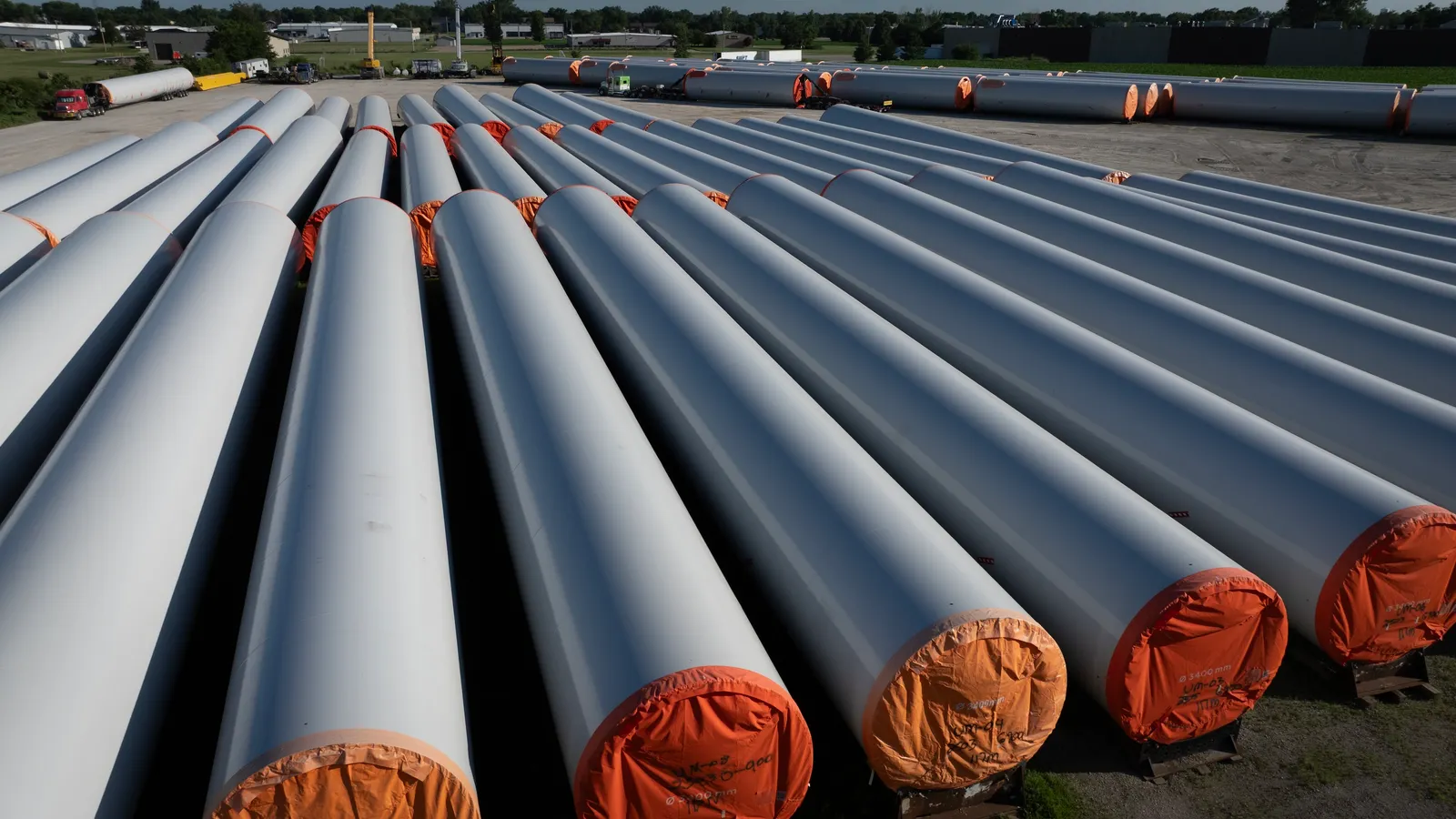Understanding the Impact of Tariffs on Material Costs
The construction industry is grappling with the unpredictable nature of material costs due to current tariff structures. With companies on their toes, strategic adjustments have become essential for maintaining operational efficiency and meeting project demands. This discussion delves into the nuances of how tariffs shape procurement strategies and affect logistics within the construction sector.
Exploring Adaptive Procurement Strategies
In an environment where material prices swing wildly, firms are re-examining their procurement protocols. As industry experts advocate, some companies are pivoting towards alternative procurement strategies to circumvent potential disruptions. This shift appears particularly prudent as firms look for ways to outsmart fluctuating costs.
- Early Work Packages: By organizing procurement in advance, construction firms can secure materials before prices escalate.
- Bulk Purchases: Large-scale purchases can often yield significant discounts, mitigating the risk of sudden price jumps.
- Warehouse Storage: Strategic stockpiling of materials allows companies to maintain a steady supply while limiting reliance on volatile markets.
Innovative Approaches to Material Sourcing
To adapt effectively, construction firms like the California-based Swinerton are leaning heavily on mass timber. This method, significantly less affected by steel and aluminum tariffs, offers speed and cost-efficiency. Kevin Smith, a vice president at Swinerton’s Carolinas division, notes that this innovation has notably enhanced project schedules and budget adherence.
The introduction of the company’s mass timber affiliate, Timberlab, exemplifies this approach. President Chris Evans highlights a shift towards vertical integration in the supply chain, which minimizes dependence on imported materials. This strategy not only enhances resilience against tariff fluctuations but also fortifies budget and timeline management, laying the groundwork for future sustainability.
“Collaboration with project owners is vital,” O’Reilly emphasizes. “Strategies must be clear and transparent to effectively manage risks associated with procurement.” The essence lies in exploring locally-sourced alternatives, reducing reliance on international materials subject to tariffs.
Concerns Regarding Production Capacity
A prominent issue looming over the construction sector is the domestic capacity to replace imported materials. With a labor force at near-record participation levels, it is challenging for companies to scale up production swiftly. The current workforce neither possesses adequate training nor size to meet the heightened demands of construction, given the overwhelmed industry.
Guckes points out that the inability to ramp up domestic production could lead to what’s termed “stagflation” — a scenario where demand stalls while material costs continue to rise. Contractors may find themselves trapped in a cycle of reduced consumption and increased pricing as they navigate these uncharted waters.
“The full execution of the current tariff strategy might lead to both rising prices and declining demand,” Guckes warns. It becomes clearer that underlying factors such as private equity flows, investor sentiment, and immigration dynamics will significantly influence the path forward for construction.
The Role of Macroeconomic Forces
Ironically, while tariffs play a role, O’Reilly notes they have not been the sole catalyst for recent shifts in construction trends. Observations indicate that continuing macroeconomic forces may have a larger influence on construction activities as the year unfolds. The focus needs to shift towards understanding these dynamics as they could overshadow the impacts of tariffs alone.
O caminho a seguir
It’s evident that construction firms must implement agile logistics and procurement practices as a response to the fluctuating landscape created by tariffs. These challenges are indeed significant, but as the saying goes, “ necessity is the mother of invention.” It is essential for companies to harness creativity to navigate material costs effectively.
What Lies Ahead for the Logistics Sector
As construction firms adapt, logistics providers also need to take heed, considering how these tariff-related trends can affect freight and distribution channels. GetTransport.com has positioned itself well in the logistics arena by offering reliable cargo transportation solutions worldwide. From office relocations to delivering bulky items like furniture and vehicles, their services cater to a range of needs. This flexibility is indispensable for companies seeking to maintain efficiency amidst rising material costs.
Understanding how tariffs mold procurement strategies and logistics will be crucial for construction players. Adopting innovative solutions, exploring diverse suppliers, and maintaining strong partnerships can not only mitigate risks but also capitalize on opportunities in this evolving landscape.
Conclusion: Navigating Uncertainty in Construction Logistics
In summary, as the construction sector navigates the whirlwind of material costs shaped by tariffs, strategic foresight will be key. By prioritizing innovative procurement strategies, firms can achieve resilient operations despite external pressures. On platforms like GetTransport.com, organizations can streamline their logistics needs, ensuring they handle deliveries and relocations at competitive prices. Simple, affordable, and convenient, GetTransport.com empowers businesses to tackle their transportation challenges head-on.
With a clear understanding of how tariffs influence logistics, companies should remain proactive in exploring avenues that ensure effective and fluid operations in construction, safeguarding their profitability. Reserve a sua viagem na GetTransport.com hoje!

 Como as tarifas influenciam os custos de materiais e as estratégias de aquisição na construção">
Como as tarifas influenciam os custos de materiais e as estratégias de aquisição na construção">